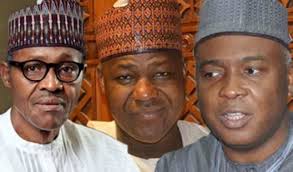Speech by Comptroller Umar Yusuf on this year’s International Customs Day (ICD) 26/01/2017
The WCO is noted for its work in areas covering the development of international conventions, instruments, and tools on topics such as commodity classification, valuation, rules of origin, collection of customs revenue, supply chain security, international trade facilitation, customs enforcement activities, combating counterfeiting in support of Intellectual Property Rights (IPR), drugs enforcement, illegal weapons trading, integrity promotion, and delivering sustainable capacity building to assist with customs reforms and modernization. The WCO maintains the international Harmonized System (HS) goods nomenclature, and administers the technical aspects of the World Trade Organization (WTO) Agreements on Customs Valuation and Rules of Origin.
The WCO’s governing body – the Council – relies on the competence and skills of a Secretariat and a range of technical and advisory committees to accomplish its mission. The Secretariat, comprising over 100 international officials, technical experts and support staff of some nationalities.
As a forum for dialogue and exchange of experiences between national Customs delegates, the WCO offers its Members a range of Conventions and other international instruments, as well as technical assistance and training services provided either directly by the Secretariat, or with its participation. The Secretariat also actively supports its Members in their endeavours to modernize and build capacity within their national Customs administrations.
Vision and objectives: The WCO is internationally acknowledged as the global centre of customs expertise and plays a leading role in the discussion, development, promotion and implementation of modern customs systems and procedures. It is responsive to the needs of its members and its strategic environment, and its instruments and best-practice approaches are recognized as the basis for sound customs administration throughout the world.
The WCO’s primary objective is to enhance the efficiency and effectiveness of membercustoms administrations, thereby assisting them to contribute successfully to national development goals, particularly revenue collection, national security, trade facilitation, community protection, and collection of trade statistics
Administration: The WCO Secretariat is headed by a Secretary General, who is elected by the WCO membership to a five-year term. The current WCO Secretary General is Kunio Mikuriya from Japan, who took office on 1 January 2009. The WCO is governed by the Council, which brings together all Members of the Organization once a year, in a meeting chaired by an elected Chairperson. Additional strategic and management guidance is provided by the Policy Commission and the Finance Committee. Several WCO committees, such as the Harmonized System Committee, the Permanent Technical Committee, the Technical Committee on Customs Valuation, Technical Committee on Rules of Origin, the Capacity Building Committee, and the SAFE Working Group, provide a platform for developing instruments and best practices on customs competencies.
Today, the WCO represents 180 Customs administrations across the globe collectively process approximately 98% of world trade. As the global centre of Customs expertise, the WCO is the only international organization with competence in Customs matters and can rightly call itself the voice of the international Customs community.
*The World Customs Organization (WCO) is an intergovernmental organization headquartered in Brussels, Belgium.








